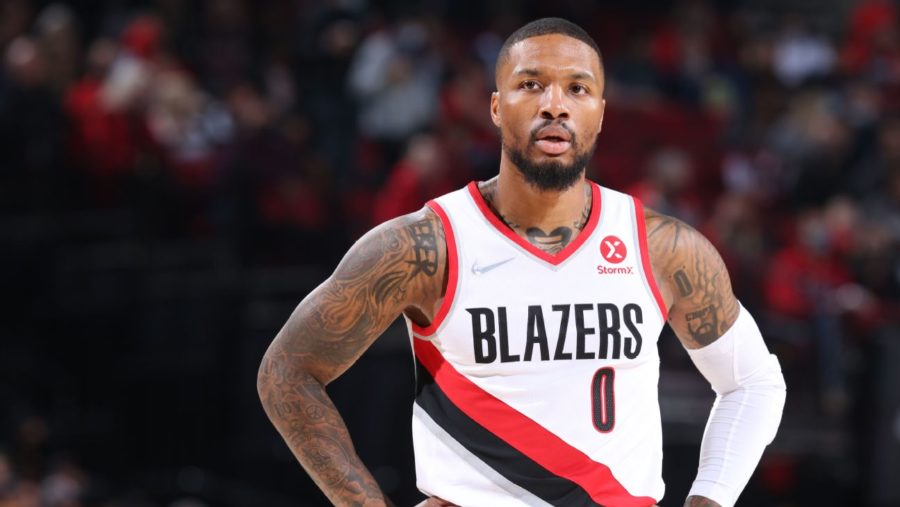Heritage Edition – How Loyalty impacts Legacies in the NBA
June 8, 2022
Damian Lillard’s loyalty to the Portland Trail Blazers has been a hot topic for the past few years. Lillard has shown himself to be, not only one of the best players in the NBA but also the most loyal and committed. He is even currently the 2nd longest-tenured player with the team that drafted them, behind Stephen Curry. However, is his loyalty holding not only him back but his legacy too?
In the last fifteen or so years, loyalty has become one of the most talked-about issues in the NBA. In many fans and analysts’ eyes, loyalty in the NBA has died. With players switching teams every other offseason, it’s not hard to believe that. With the rise of the player empowerment era in the 2010s. 8 players named to the 2020 and 2021 All-Star teams are no longer on the franchise they represented that year, and only 9 from the 2018 team are still on that team. So why is that? Many are to blame the advent of Free Agency and superteams for the destruction of loyalty.
During the league’s first 30 years, the idea of what we now know as Free Agency did not exist. The only way you could join or leave a team would be by the draft, a trade, or retirement. This was because the teams held more leverage over the players than the players had over themselves. Eventually, Bob Cousy established the National Basketball Players Association. That was until 1988 when Tom Chambers of the Seattle SuperSonics became the first unrestricted free agent in NBA History under a new CBA and signed with the Phoenix Suns. Free Agency became a staple of the league and didn’t arise any controversy until around 2010 when LeBron James and Chris Bosh, signed with the Miami Heat to create a “Superteam” with Dwyane Wade. This move was met with a lot of hate towards James’s way, as just months prior, he won his second MVP award, and he was seen as “unloyal” to his hometown Cleveland Cavaliers. A similar event happened two years later when Orlando Magic superstar Dwight Howard requested a trade to the Los Angeles Lakers after losing to them in the NBA Finals two years prior, and again four years after when Kevin Durant signed with a Golden State Warriors team that he just lost to in the Conference Finals a month before and won 73 games the previous season, and again two years later when Kyrie Irving requested a trade to the Celtics after notoriously telling a young fan he wasn’t going to leave the Cavs “like LeBron left us.” This is when loyalty became an issue and factor in determining a player’s legacy. To many, LeBron James is the second greatest player to step foot on an NBA Court, behind Michael Jordan. However, his legacy will be tainted by leaving teams after deep playoff runs. Kevin Durant will go down as the best scorer of the 2010s, however, all of that will be overshadowed by him leaving two title-contending teams after losing in the Finals.
When loyalty is brought up today, guys like Larry Bird, Kobe Bryant, and Dirk Nowitzki are mentioned. All three of them won titles with the teams that drafted them, and all retired playing under one franchise. The thing is, no one man can carry 14 players to a championship. The difference between someone like Damian Lillard and Kobe Bryant is, that Kobe had multiple stars on his team during all five of his championships. During his first three championships, Bryant had Glen Rice, Shaquille O’Neal, Robert Horry, and Derek Fisher. During Lillard’s deepest playoff run, the 2019 Western Conference Finals, he was backed up by C.J. McCollum, Evan Turner, Al-Farouq Aminu, and Enes Kanter. Obviously, there’s a lot of disparity between the two. Not every star player can be gifted enough to play under great management or a team that wants to see them win. The only reason Michael Jordan won six titles, was because he had a franchise that was built around him, not next to him. Though, while there are a couple of examples of star players quite literally carrying their team to a deep playoff run (I.e. 2007/2018 LeBron James, 2001 Allen Iverson) It is very much impossible to single-handedly bring a poor team to the finals.










































































































































